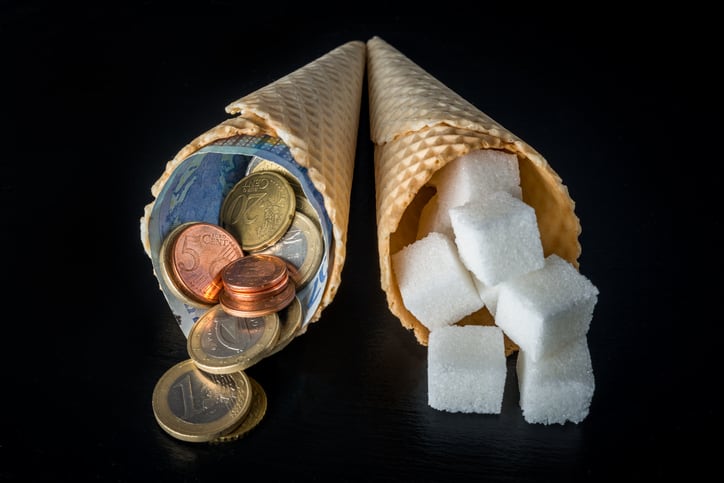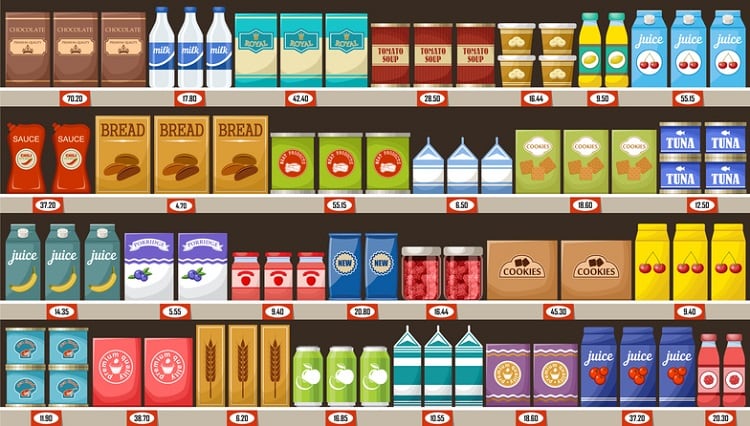Sugar taxes have spread globally with around 40 individual cities, states and countries implementing tax measures.
In total, 11 European countries now have some form of sugar or health tax, including the UK, Ireland, France and Portugal.
The use of financial instruments such as sugar taxes has been roundly opposed by the food industry, with critics arguing that they are regressive, represent the extension of the ‘nanny state’ – and simply that such measures are ineffective.
“The tax fails to change behaviour and simply becomes a source of government revenue which hits the poorest hardest,” European think tank Epicenter argued.
However, while a 1% increase in the price of high sugar products doesn’t necessarily result in a 1% drop in sales, there is some evidence that such policy can spur reformulation efforts.
In the UK, for instance, the sugar tax generated just half the revenue forecast from business because drinks manufacturers reformulated their products so that contained less sugar than the tax threshold.
“The implementation of these sugar taxes is not to pass increased costs on to the consumer, but rather inspire increased reformulation amidst manufacturers, leading to benefits for all in the supply chain,” Samuel Russell, EMEA marketing manager at Univar Solutions, suggested.
The economic equation
Reformulation can be an expensive process. In addition to the costs associated with developing a new recipe, replacing sugar – often used as a cheap filler – with mostly costly sweeteners and other ingredients adds a layer of expense for food businesses.
However, Mane marketing, sensory and consumer research manager Dominique Delfaud observed that the introduction of sugar taxes “considerably modify the economic equation”.
“Lowering the sugar content can enable food makers to avoid the tax and offer an attractive price point to the consumers,” she suggested.
Univar’s Russell concurred that sugar taxes can make reformulation a much more attractive financial prospect.
“From a manufacturer’s viewpoint, the impact of the growing number of ‘Sugar taxes’ being implemented in EU countries is having an effect. When working on your sugar reduction solutions it’s crucial to weigh up any increased formulation costs with potential cost-savings from a taxation point of view. We’ve seen examples where cost-in-use can actually reduce significantly in sugar reduced recipes when sugar taxes are included,” he suggested.
Value proposition
Beyond cost, reformulation provides food makers with the opportunity to deliver a stronger value proposition to today’s consumers, who are increasingly health conscious and concerned about the impact that excessive sugar consumption has on their wellbeing.
According to Russell, cost is “perhaps” becoming less of an issue, with 40% of consumers expecting to pay more for a healthier more functional snack, according to research.
“Today’s functional ingredients offer a whole host of other benefits, whilst reducing sugar, thus creating more value for the consumer,” he continued. “By adding bulk through fibres, for example, you can potentially add a ‘high in fibre’ claim to a product that is also ‘sugar-reduced’, thus adding another dimension to your concept.”
Likewise, Mane VP of strategic development, Luis Angel Fernandez, stressed that the “right price” relates to the overall benefit to the consumer.
“The ability to reformulate a food matrix reducing significantly the level of mono and disaccharides (high glycemic index sugars) and calories at the same time while maintaining the stability and overall sensory experience has a tremendous value.
“A higher “right price” versus the standard full sugar and full calorie product is accepted if the consumer appeal is maintained or even increased. What is the “right price” for a healthier lifestyle keeping or augmenting consumer satisfaction?”




